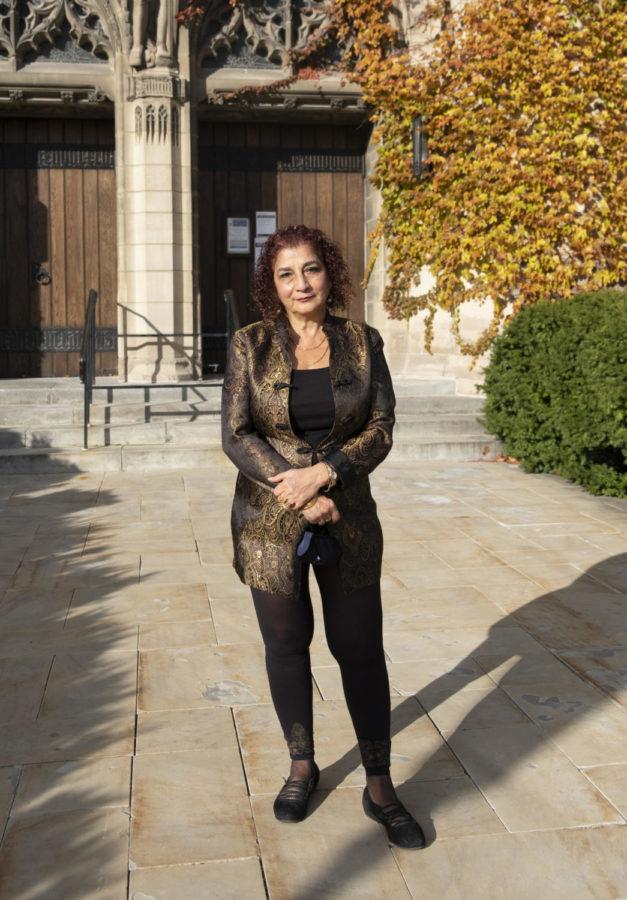Over one million cases of COVID-19 have been recorded in Chicago, as well as over 22,000 deaths. That’s a scary statistic for UChicago students. It’s enough to make even my most COVID-indifferent roommate put on a mask when a good friend knocks on our door—not because she’s worried about herself, but because she can’t risk testing positive on Sunday before she gets on her flight back home. Out of respect for her, and based on city guidelines, my other roommates and I have been social distancing a little extra to avoid any unnecessary risk. And so I’ve come to realize that a lot of consent and communication-related issues, which you’d normally associate most with sex and relationships, surprisingly translate into everyday pandemic discussions with friends and roommates.
That can often be a pretty hard thing to figure out. I remember how important COVID–19 guidelines and social distancing rules were back in June, as students were figuring out who to live with off-campus. I have many good friends with whom I would have loved to live with, had this been any other time—but because we couldn’t consent to the same social distancing rules, we simply couldn’t live together. When I signed my current lease with three friends, we had our rules written down in a color-coded apartment spreadsheet: a soft maximum of four non-roommates in the apartment at once, no big gatherings, and no interacting mask-less with people who have been to big gatherings.
But we probably should’ve considered that, as with any other form of consent, the rules need to be specific and are subject to change. We never outlined a specific definition of a big gathering, whether it means six close friends or 60 strangers. We also never really communicated about what we were comfortable with each other doing. And so recently, I camped out on our couch waiting to talk to one of my roommates about the fact that she’d snapped at me and our other roommate the previous night, because she was upset that we’d visited our neighbors’ apartment. I want to listen to what she wants and follow the rules that we’ve each consented to. But I hadn’t been able to do that this time, because I had had no idea that she wasn’t comfortable with us visiting next door.
I’ve come to realize how crucial it is that we communicate and assert boundaries and consent with each other before things happen, even if we think it’s something the other person doesn’t want to hear. The argument that she and my other roommate have a lot is related to the idea that consent is always an ongoing matter. Because we decided to regulate our attendance at gatherings on a case-by-case basis (before the most recent stay-at-home order), one roommate is always confused about whether something is allowed, while the other thinks it’s based on whatever decision we made a few weeks earlier. It’s made me realize that communicating what we’re comfortable with is an ongoing process, and it’s important for us to respect those changing boundaries no matter what. Although it seems like sex and dating aren’t as active a scene right now, consent is still important in these other areas.
Because respecting boundaries is no different when it comes to friendships. One of my best friends lives fifteen minutes from me, but I haven’t really seen her since March, because she’s extremely cautious about the virus and is in almost complete isolation. She even gets her groceries delivered to her house instead of going to stores. As someone whose love languages are physical affection and quality time, I’ll be the first to admit that this isn’t my ideal scenario. I’ve been frustrated and confused about not hanging out sometimes—she isn’t immunocompromised or high risk—especially when I’ve tested negative in the past 36 hours, haven’t seen anyone other than my roommates, and am wearing a mask. At the same time, I love my friend. So if she doesn’t want to take even the smallest risk of catching a potentially fatal virus, that is completely valid and I would never do anything to jeopardize that.
A pre-med friend of mine likes to analogize situations like these to the concept of “limiting reagents” in chemistry. She’s not wrong. When it comes to COVID–19 rules and consent, you’ve got to follow whatever the most cautious person is comfortable with, because their need for safety outweighs your want for fun. There are ways to compromise spending time with friends, but there aren’t ways to compromise on someone’s health and wellbeing. Social time is hard during a pandemic. My roommates and I often feel like a broken record when we talk about that—but it’s true, and it’s definitely led to a fair amount of tension between us over the past few months. I think the one thing that’s important as we continue to navigate this is the fact that we have to keep communicating to each other about what we’re comfortable with and what we can consent to.
Manya Bharadwaj is a second-year in the College.



















